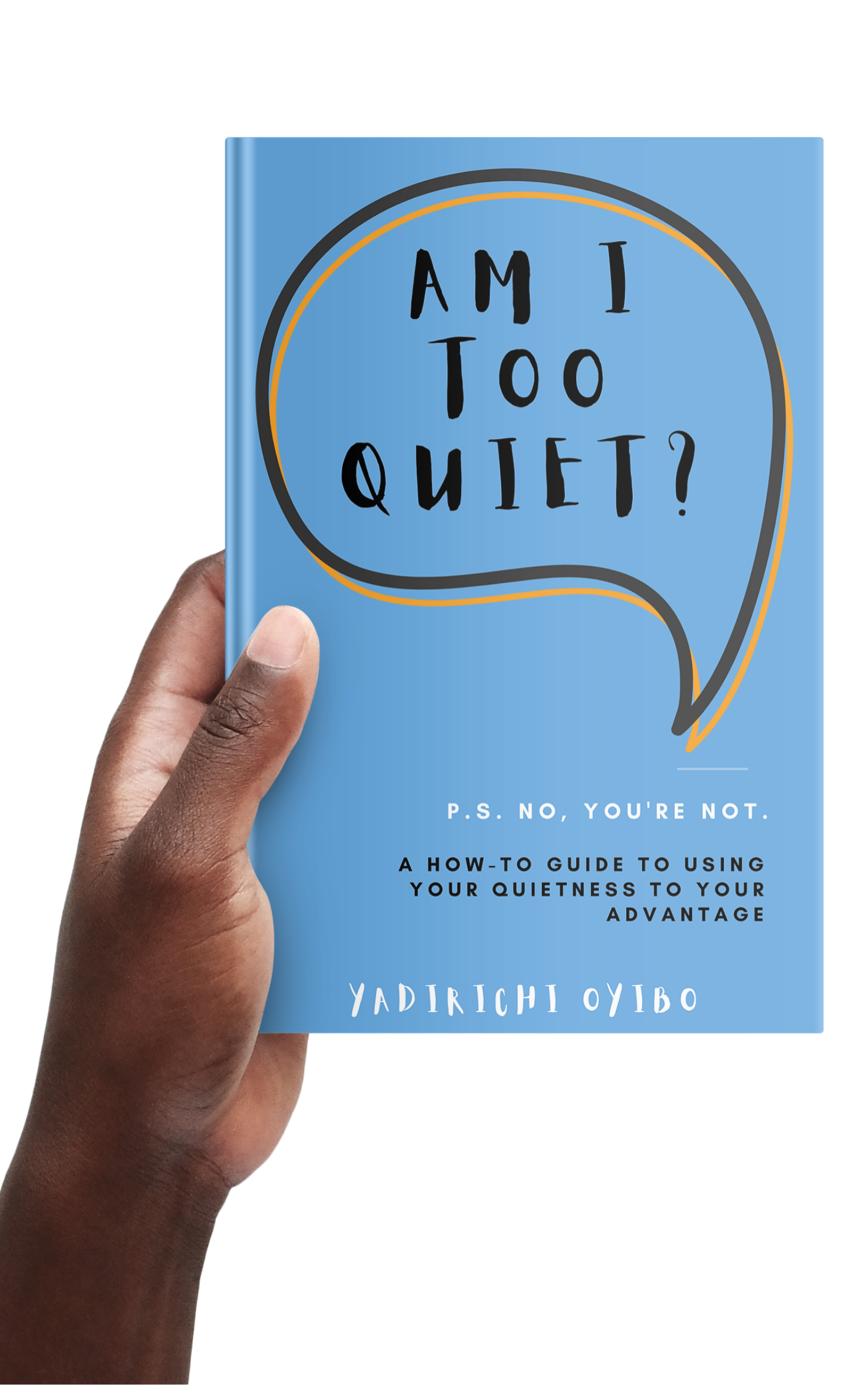I Hate Myself: How to Deal With Self-Hatred as an Introvert
I’m quiet, and I find solace in the peaceful corners of my world.
But there are moments when my own thoughts become a prison, suffocating me with self-criticism and doubt to the point where I start saying, “I hate myself.”
If you, too, have ever battled the demons of negative self-talk, join me on a journey of self-discovery and empowerment on how to deal with hating yourself.
In this article, I'll explore practical strategies to break free from the chains of self-hatred and embrace the unique strengths that make us introverts.
I learned how to stop hating myself because it was key to unleashing my potential to the world. You, too, can do the same.
So, get ready to conquer your inner critic and finally discover how to stop self-hatred below.
As an Introvert, I Can Understand Self Hatred
Self-hatred is a common experience for introverts.
If you’re asking, “Why do I hate myself?” Here are a few reasons why it might happen.
One reason is that introverts are often misunderstood. We may be seen as shy or antisocial, when, in reality, we simply prefer to spend time alone. This can lead to feelings of isolation and loneliness, which can in turn cause self-hatred.
Another reason is that introverts are often judged for their introversion. They may be told that they need to be more outgoing or that they're not trying hard enough. This can make introverts feel like they're not good enough.
As such, we often battle with thoughts of inadequacy in social situations, doubting our communication skills, and believing we're not as outgoing or charismatic as our extroverted counterparts.
We may even berate ourselves for needing alone time, feeling guilty for not being more sociable.
When you hate yourself, these thoughts can chip away at your self-esteem and make you question your worth.
This was the same for me.
Hating myself made me a shadow of myself. Every time I thought, “I hate me!” or “I dislike myself,” it only magnified my weaknesses.
I had to learn how to tackle these negative thoughts head-on.
If you’re in the same dilemma, fear not, my introverted friend, because you’re going to reclaim your self-confidence after reading this guide!
Why do we introverts have a knack for engaging in self-criticism?
First off, our preference for introspection and self-reflection means we spend a lot of time in our own heads. This can lead to overthinking and magnifying our flaws or mistakes.
Additionally, society often values extroverted traits, which can make us feel like we don't quite measure up. We may compare ourselves to more outgoing individuals and believe we fall short.
It’s also safe to say that our desire for deep connections means we can be highly attuned to the opinions and judgments of others, leading us to be overly self-critical to avoid potential rejection.
Is it normal to hate yourself? No. However, it's important to understand these underlying reasons so you can challenge them, and cultivate a healthier relationship with yourself.
If you've ever thought to yourself, “Why do I hate myself so much?” Knowing these reasons is the first step to overcoming self-hate.
But first, let’s look at why overcoming self-hatred is so critical.
The Damaging Effects of Negative Self-Talk
If your answer to the question, “Do I hate myself?” is ‘yes’, then you need to know the ripple effect it causes.
When you constantly engage in self-criticism and harbor negative beliefs about yourself, first, your self-esteem takes a hit.
You begin to doubt your abilities, question your worth, and feel inadequate in various aspects of your life. The moment you start telling yourself, “I think I hate myself” or “I don’t like myself,” you unconsciously put yourself in a psychological prison.
These negative thoughts can also affect your overall well-being. They create a constant state of inner turmoil, draining your energy and leaving you emotionally exhausted.
As the weight of self-doubt lingers in your mind, it can hinder your ability to pursue your goals and experience genuine happiness and fulfillment.
Negative thoughts can even trap introverts in a cycle of self-isolation. You might start telling yourself, “I hate myself and everyone else,” and withdraw from social situations, fearing judgment or rejection. This can lead to further feelings of loneliness and exacerbate negative thinking patterns.
Yes! Negative self-talk has a cycle!
It often starts with a triggering event or situation, such as a perceived social mistake or a comparison to others.
In response to this trigger, negative thoughts flood the mind of an introvert, causing self-criticism and self-doubt. For example, you might say, “I hate myself today!”
The more we engage in negative self-talk, the more it becomes ingrained in our thought patterns.
Since we introverts tend to ruminate and replay situations in our heads, this magnifies our perceived flaws and mistakes.
It reinforces the negative beliefs we hold about ourselves, further fueling the cycle of hating oneself. Over time, it becomes automatic—almost second nature. We may start to believe these negative thoughts as absolute truths.
Breaking free from this cycle is necessary for mental freedom. If you want to learn how to not hate yourself, continue reading.
Strategies for Overcoming Negative Thoughts
Photo by Elyas Pasban on Unsplash
If you’re saying to yourself, “I hate myself, what do I do?” we’re here to help. Every introvert can learn to control negative thoughts if they use these simple, useful techniques in their everyday lives. Let’s dive into them:
Self-awareness
You can interrupt and challenge feelings of hating yourself before they spiral out of control, by becoming more aware of your own thinking patterns.
Cultivating self-awareness is what to do when you hate yourself. It’s key to overcoming self-hatred. If you’re wondering how to be self-aware, do the following:
When negative thoughts arise, simply acknowledge them without getting caught up in its emotional impact. You can learn how to stop self-hatred by practicing being fully present at the moment and observing your thoughts without judgment (mindfulness).
Writing down your thoughts and feelings regularly (journaling) is what someone who hates themselves should do. This brings you into conscious awareness, making it easier to identify negative patterns and triggers. Reflect on your entries to gain insights into recurring self-hatred and the situations or events that tend to provoke them.
You can learn how to deal with self-hatred by paying attention to your thoughts throughout the day (thought monitoring). When a negative thought arises, pause and examine it objectively. Ask yourself if the thought is rational, realistic, and based on evidence. Challenge the validity of self-hatred by seeking alternative perspectives or evidence.
Watch out for emotional cues. Do you feel tense, anxious, or down when self-hatred arises? If yes, then, noticing how negative thoughts manifest in your emotions or physical senses is how to stop hating yourself. Use these emotional cues as signals to become aware of the underlying self-hate and begin questioning their validity.
Identifying the patterns that triggers your negative thoughts is how to stop self-hate. Is it social situations, comparisons to others, or specific self-critical beliefs that make you hate yourself? Once you know the patterns that contribute to it, you can actively work on reframing those triggers or avoiding situations that consistently elicit negative thoughts.
2. Challenging and reframing negative beliefs
When it boils down to dealing with extreme self-hatred, you have to challenge and reframe your negative beliefs. If you’re asking yourself, “How do I stop hating myself?” here are two important strategies to use:
Identify Cognitive Distortions
Cognitive distortions are irrational and biased patterns of thinking that contribute to self-hatred.
For example, thinking, “I hate myself so much it makes me sick!” Is a highly unjustifiable statement that can affect a person’s esteem.
If you want to learn how to help someone who hates themselves, tell them to recognize the following distortions and challenge their validity:
All-or-nothing thinking: Seeing things in black and white without considering shades of gray.
Overgeneralization: Drawing broad negative conclusions based on a single negative event.
Personalization: Taking things personally and assuming responsibility for events beyond your control.
Mental filtering: Focusing only on the negative aspects while ignoring the positive.
Catastrophizing: Magnifying the importance or impact of a negative event.
By identifying these distortions, you can question the accuracy of your self-hatred and learn how to stop self-loathing.
2. Replacing Negative Thoughts with Positive and Realistic Affirmations
Once cognitive distortions are recognized, it's essential to replace them with positive and realistic affirmations.
This involves consciously challenging negative beliefs and actively replacing them with more supportive and accurate self-talk. For example:
Instead of "I always mess up in social situations," replace it with "I have had successful social interactions in the past, and I can learn from any perceived mistakes."
Instead of "I'm not as outgoing as others, so I'm not interesting," replace it with "I have unique qualities and perspectives that make me intriguing and valuable."
The key is to focus on evidence-based and compassionate self-talk that acknowledges both your strengths and weaknesses.
By consistently practicing these affirmations, we introverts can rewire our thought patterns and foster a more positive and realistic mindset.
3. Seeking support: Building a network of understanding individuals
While we may tend to internalize our struggles, reaching out to others who empathize with our experiences can provide a powerful source of validation, encouragement, and empowered perspective.
Here are some benefits of seeking support:
Connecting with fellow introverts who have gone through similar challenges reminds us that our negative thoughts are not unique to us and that others have overcome them.
It also gives you an opportunity to gain insights, techniques, and resources that have helped others in overcoming self-hatred.
Lastly, their support can fuel your determination to break free from the cycle of self-hatred and foster a more positive mindset.
Building this network can be done through various means, such as joining introvert-focused communities, participating in support groups, or even engaging in online platforms and forums.
Liking this article? Join our Introvert Club→
4. Embracing self-care and self-compassion
In a world that often demands constant productivity and external validation, introverts need to carve out space for self-care and self-compassion. This is how to hate yourself less.
Self-compassion is about acknowledging your unique needs, honoring your boundaries, and treating yourself with kindness and understanding.
As introverts, we find solace and rejuvenation in activities that align with our preferences for solitude and reflection.
This could include reading a favorite book, taking long walks in nature, engaging in creative pursuits, practicing yoga or gentle exercise, or simply spending quality time alone doing things that bring joy and relaxation.
These self-care activities are essential for cultivating self-acceptance.
It’s important to prioritize self-compassion during these activities. Instead of criticizing ourselves for needing alone time or feeling guilty for practicing self-care, we should embrace the fact that self-care is a necessary part of maintaining our mental and emotional well-being.
You are more than what people perceive about you!
This statement holds true for introverts who often face misconceptions and judgments based on their quieter nature.
Remember, as an introvert, you bring a wealth of strengths to the table.
Your ability to observe and analyze situations with thoughtfulness allows for creative problem-solving and insightful perspectives.
More so, introverts often possess excellent concentration skills, making them meticulous and thorough in their work.
Guess what? You’re not alone in this!
Numerous successful introverts have overcome self-hatred and thrived. One inspiring example is the renowned physicist Albert Einstein.
Known for his groundbreaking theories, Einstein was an introvert who embraced solitude to explore complex scientific concepts.
Despite facing academic setbacks in his early years, he persevered, trusting his own insights and challenging prevailing notions.
His introversion allowed him to dive deep into his thoughts and make profound discoveries that revolutionized our understanding of the universe.
Another notable introvert who triumphed over self-hatred is J.K. Rowling, the author of the immensely popular Harry Potter series. Rowling's journey was filled with personal challenges and rejections.
As an introvert, she found solace in writing and poured her creativity into crafting a captivating world of magic and adventure. Through determination and self-belief, she turned her passion into an international phenomenon, touching the lives of millions of readers worldwide.
By embracing their introversion and leveraging their innate qualities, introverts have the potential to make significant contributions and excel in various domains.
These success stories serve as a reminder that self-hatred need not define our journey.
By recognizing that you are more than the judgments and perceptions of others, you can break free from self-doubt and forge your own paths to success—fueled by your introspection, passion, and determination.
Now, over to you…
Navigating self-hatred as an introvert can be a challenging journey, but it's one that can lead to profound personal growth and self-acceptance.
Throughout this article, we have explored various strategies to help introverts deal with self-hatred and cultivate a healthier mindset.
Introverts have unique strengths such as deep thinking, empathy, and creativity. But what’s most important is to embrace introversion and seek support from others to overcome self-hatred.
If you’re dealing with not liking yourself, we want to leave you with a hopeful and empowering message. Remember that you are more than what others perceive about you.
Recognize your strengths, prioritize your well-being, and implement the strategies discussed in this article.
More importantly, don’t hate yourself, and be gentle with yourself along the way.
Your journey towards self-acceptance and positive self-talk is unique, and with perseverance and self-compassion, you can cultivate a mindset that empowers you to thrive as an introvert.
If you’re thinking of what to say to someone who is self-loathing, kindly share this article with them. Or, leave a comment below if you liked this article.
Live Your Best Quiet Life
Get the Am I Too Quiet? book →














